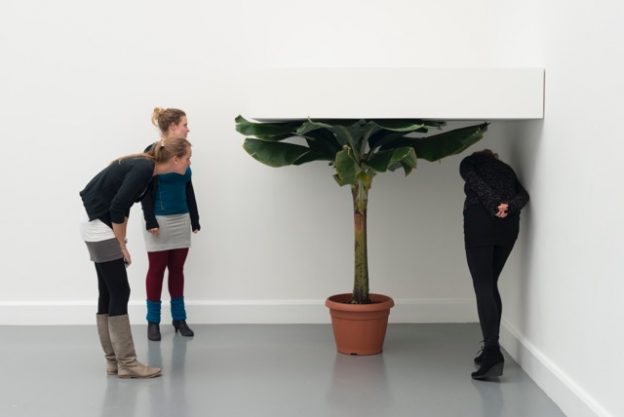Theoretical Practice/Lecture Class (Vorlesung)
The project proposes to think about the so called internationalization of the art world after 1989 marked by a proliferation of biennials dedicated to displaying international art developments and paralleled by changes in the world market under globalization. We will consider institutional, political, and exhibiting structures that mediated the origination of ‘regional art’ as a dominant epistemological tool for situating the notion of contemporaneity into factual spaces and social situations. The project particularly focuses on the notion of Eastern European Art as a designation that in its very wording contains the internalization of the Western gaze. It is, as such, less a sign of a distinction than of hierarchy. ‘Eastern-European Art’ is part of an ideological construction called the post-communist condition. Within this ideological frame, communism is represented as a phenomenon at odds with Western modernity – a representation buttressed by colonial topoi such as ‘insufficient development’, ‘belatedness’ etc. We will be looking into how the term ‚Eastern European Art’ came about; and we will examine how it was re-instated within the context of a ‘politics of New Europe’ after the fall of the Berlin Wall and with the erasure of communism from the horizon of realpolitik. ‚Eastern-European Art’ will thus be used as a template or a case study for other identitarian denominators of multiculturalism. We will use it in order to analyze how a post-1989 optimism with regard to a decentralization of Western paradigms in order to establish multiple temporalities and local modernisms did not, in fact, lead to the breakdown of cultural hierarchies. While the Western canon was replaced by a global international canon, power relations were kept more or less intact.
These debates will be framed by discussing the history of exhibitions and of curating and exhibition making as practices of cultural translation. Our understanding of translation will follow Homi Bhabhas proposal to think of and with translation as a way of critizising multiculturalist ideology that, while promoting different cultures, still rests on a conception of unique, essential cultural identities. We will particularly consider practices that include perspectives of equality, a notion often neglected by post-colonial studies’ insistence on plurality. There will be a core text for the lecture class, if you want to read it before the meetings, contact freycha(at)icloud.com.
04.05.17 11:00 – 17:00
05.05.17 11:00 – 15:00
14.06.17 11:00 – 17:00 gemeinsamer Documenta-Besuch mit Johanna Schaffer
Image: David Maljkovic, Untitled, 2012 courtesy Metro Pictures, New York, photo: Peter Cox/Van Abbemuseum Eindhoven
